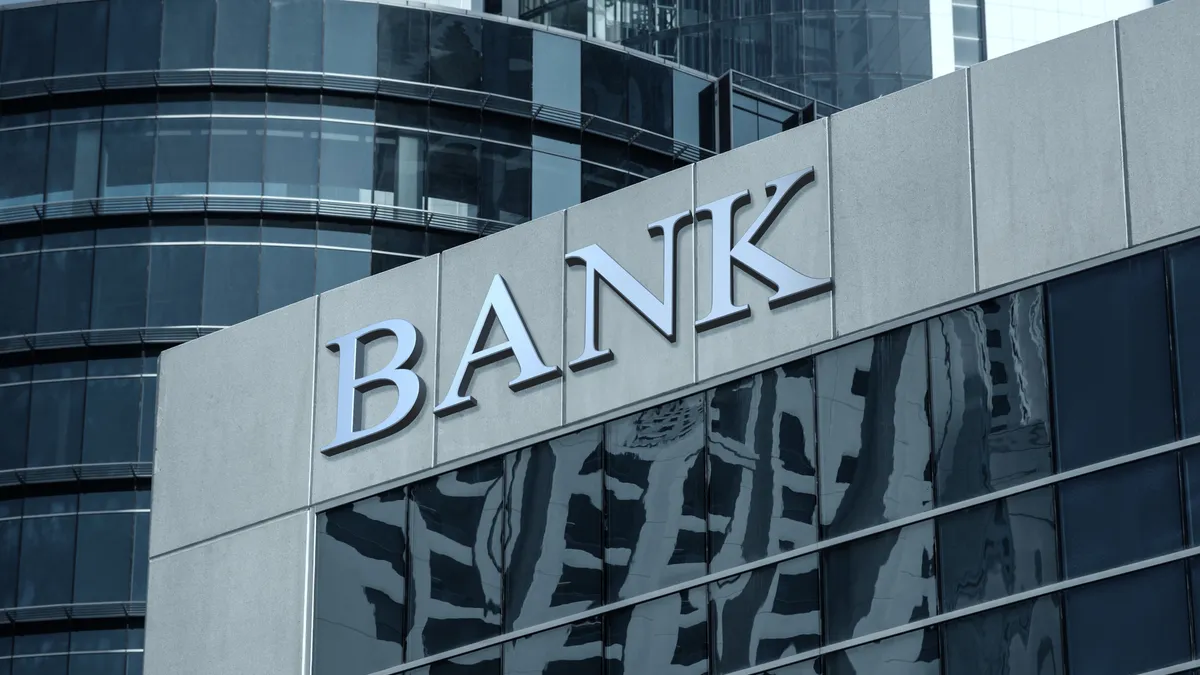In a major pushback against the cryptocurrency industry's banking ambitions, the American Bankers Association and four other bank trade groups have urged the Office of the Comptroller of the Currency to postpone decisions on several national trust bank charter applications.
The joint letter sent July 17 comes in response to a slew of applications filed since April 2025 by crypto firms, including Fidelity Digital Assets, Ripple, Circle, and National Digital TR CO – all seeking specialized banking charters that would grant them federal recognition and more simplified regulatory oversight.
The ABA, America’s Credit Unions, Consumer Bankers Association, Independent Community Bankers of America and National Bankers Association argued that the public portions of the applications lack sufficient information for meaningful public scrutiny and that more transparency is needed about the applicants' business plans.
“Given these substantial concerns, and the policy, legal, and commercial implications that chartering the Applicants would have for the banking system, the Associations urge the OCC to postpone consideration of the Applications,” the trade groups wrote. “The delay should continue until such time as the OCC has released enough information concerning the Applicants’ intended business plans, as well as other aspects of the Applications, to inform the public’s review and interested stakeholder comment, consistent with the historical transparency of the OCC’s charter application review process.”
The groups pointed out that a delay would buy more time for the public to “meaningfully assess the Applications and the novel issues they present” and offer their input on the broader policy shift that granting these national trust bank charters would present, since they will not be involved in fiduciary activities.
The trade groups’ letter has surprised bank charter experts, who don’t necessarily expect more information to be made public.
Patrick Hanchey, a partner at law firm Alston & Bird, said a standard regulatory process includes both public and confidential portions of applications. Confidential parts are protected from Freedom of Information Act requests and public disclosure to safeguard proprietary business information.
The OCC's established policy does not involve publishing detailed application information for public review, although the agency thoroughly evaluates all application details internally with multiple follow-up questions over weeks or months — a standard process for traditional de novo bank charter applications, he said.
“Even if the OCC delays or refrains from acting in an expedited fashion on these applications, I would not expect there to be detailed information released to the public, for the public to react to,” Hanchey noted.
At times, the OCC holds public hearings, typically focusing on community development impact, Community Reinvestment Act considerations and competitive factors, but not on applicants' specific business plans or strategies, he added.
“There's nothing nefarious here; this is very common practice,” said Michele Alt, a partner at consulting firm Klaros Group, echoing Hanchey’s views on the two-part application process.
A national trust bank charter differs from a traditional bank charter in that it has a more limited scope of authorization for financial activities. Its primary custody or fiduciary activities on behalf of customers are similar to a trust company, Hanchey said.
A trust company manages assets and administers trusts on behalf of individuals or organizations; it cannot lend or take insured deposits since it is not an insured depository institution.
Capital requirements for trust banks also differ from those of traditional banks – traditional banks’ capital requirements are based on asset size as a risk proxy, whereas trust banks hold assets in trust and not on their balance sheets, according to Alt.
The regulatory differences raise questions about consumer protection and liability if a trust bank fails, as it is not typically insured by the Federal Deposit Insurance Corp. However, the OCC has specific procedures for resolving uninsured banks, she pointed out.
The resolution framework dates back to 2016 — almost during the same time as early fintech charter considerations, Alt noted. The process involves the OCC appointing an independent receiver, rather than acting as the receiver itself. The claims prioritization system is similar to that of bankruptcy proceedings, where the receiver's costs are typically covered first, followed by creditors and other claimants.
The primary risk concerns for trust banks, according to Alt, involve focusing on safeguarding assets rather than loan defaults or deposit runs, safeguarding against potential hacking vulnerabilities and specific risks related to crypto assets, when applicable.
The national trust bank charter applications were filed before the Guiding and Establishing National Innovation for US Stablecoins Act, which aims to create a framework for stablecoin regulation, was signed into law July 18.
Hanchey noted that the applications were submitted strategically, anticipating but not certain of the GENIUS Act’s outcome. The federal charter would provide regulatory legitimacy in the marketplace, the ability to conduct activities in a regulated, safe and sound manner, and the flexibility to operate under federal oversight, he said.
The ABA’s request for delay highlights the need to understand “exactly how these charters would be used and what they would accomplish,” Hanchey said, since there’s not much use-case evidence in this regard.
“I certainly agree with that as well. I think it remains to be seen exactly how these companies would intend to use their charters,” Hanchey said.




















